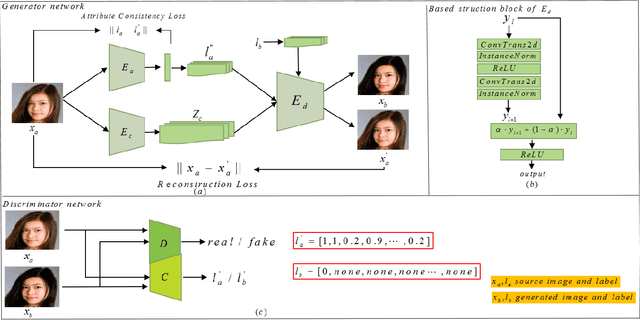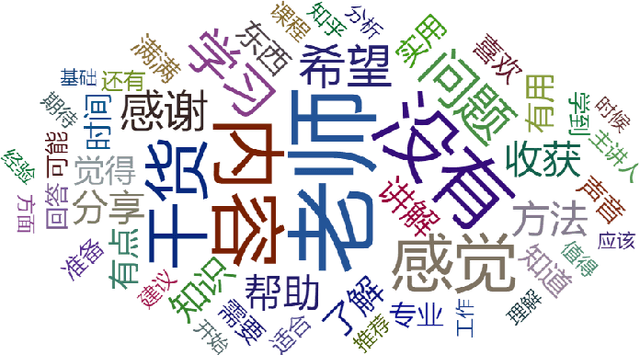Fuchuan Ni
ClsGAN: Selective Attribute Editing Based On Classification Adversarial Network
Oct 25, 2019



Abstract:Attribution editing has shown remarking progress by the incorporating of encoder-decoder structure and generative adversarial network. However, there are still some challenges in the quality and attribute transformation of the generated images. Encoder-decoder structure leads to blurring of images and the skip-connection of encoder-decoder structure weakens the attribute transfer ability. To address these limitations, we propose a classification adversarial model(Cls-GAN) that can balance between attribute transfer and generated photo-realistic images. Considering that the transfer images are affected by the original attribute using skip-connection, we introduce upper convolution residual network(Tr-resnet) to selectively extract information from the source image and target label. Specially, we apply to the attribute classification adversarial network to learn about the defects of attribute transfer images so as to guide the generator. Finally, to meet the requirement of multimodal and improve reconstruction effect, we build two encoders including the content and style network, and select a attribute label approximation between source label and the output of style network. Experiments that operates at the dataset of CelebA show that images are superiority against the existing state-of-the-art models in image quality and transfer accuracy. Experiments on wikiart and seasonal datasets demonstrate that ClsGAN can effectively implement styel transfer.
Data-driven Approach for Quality Evaluation on Knowledge Sharing Platform
Mar 01, 2019



Abstract:In recent years, voice knowledge sharing and question answering (Q&A) platforms have attracted much attention, which greatly facilitate the knowledge acquisition for people. However, little research has evaluated on the quality evaluation on voice knowledge sharing. This paper presents a data-driven approach to automatically evaluate the quality of a specific Q&A platform (Zhihu Live). Extensive experiments demonstrate the effectiveness of the proposed method. Furthermore, we introduce a dataset of Zhihu Live as an open resource for researchers in related areas. This dataset will facilitate the development of new methods on knowledge sharing services quality evaluation.
 Add to Chrome
Add to Chrome Add to Firefox
Add to Firefox Add to Edge
Add to Edge